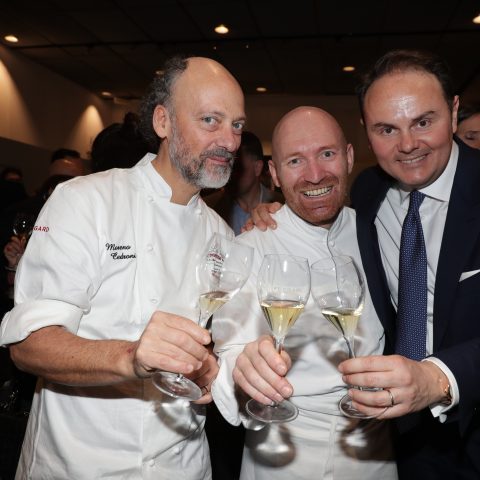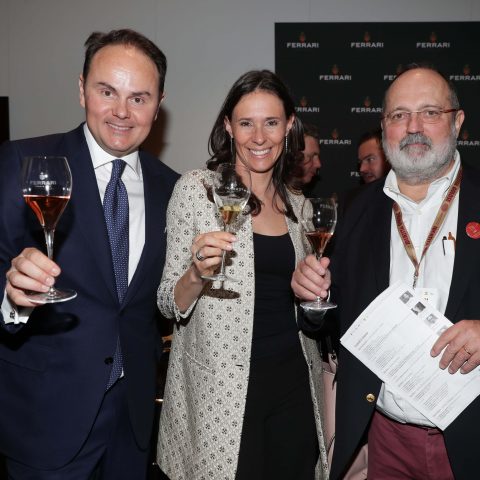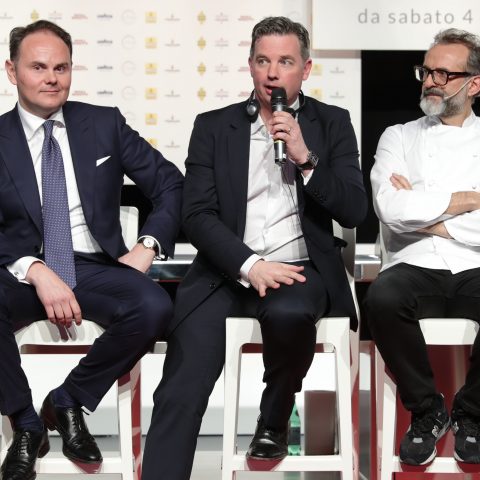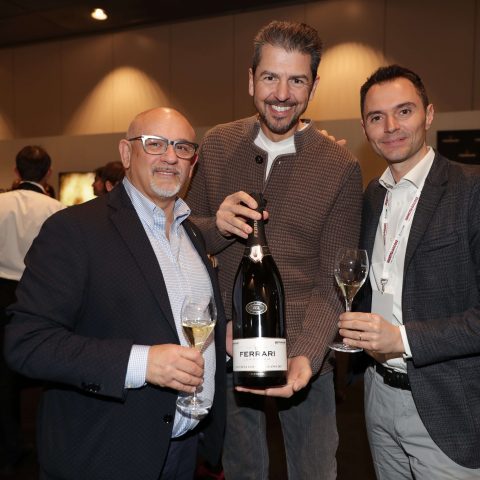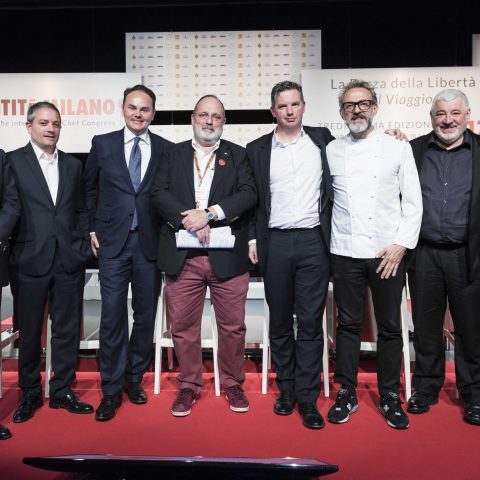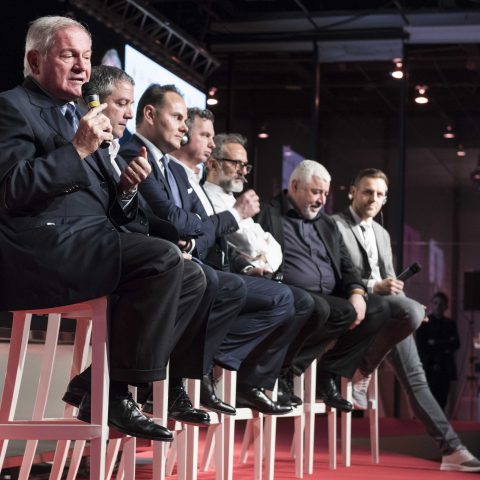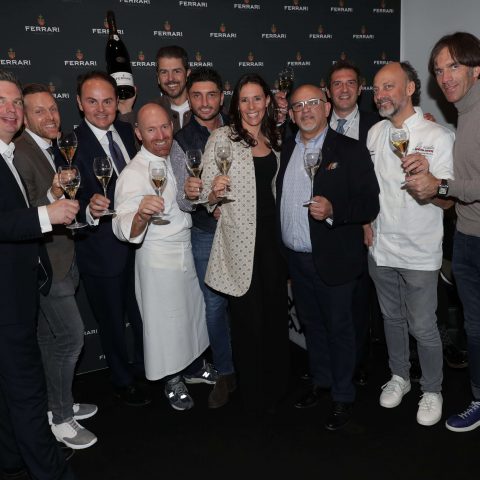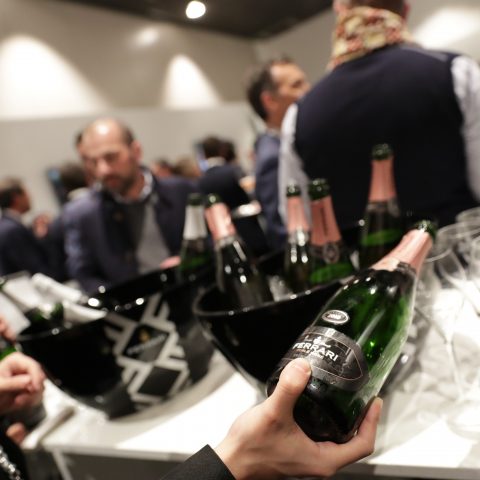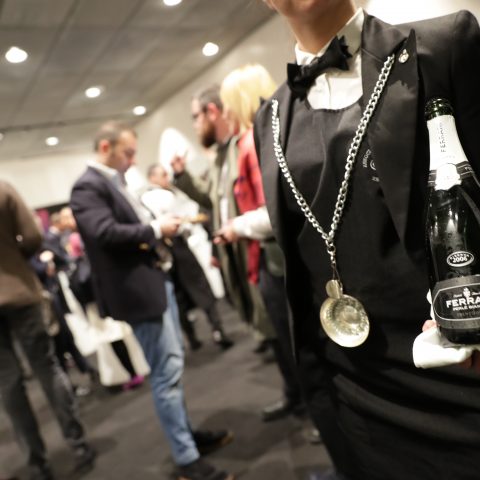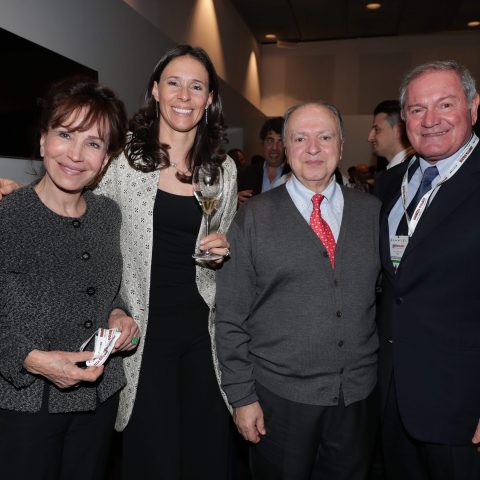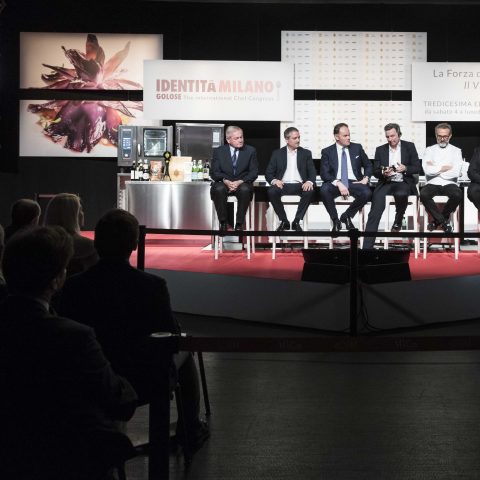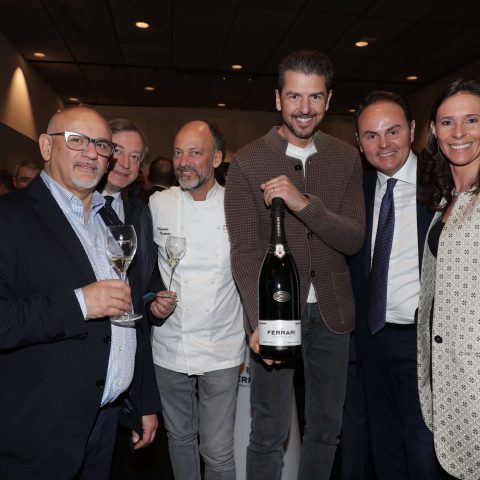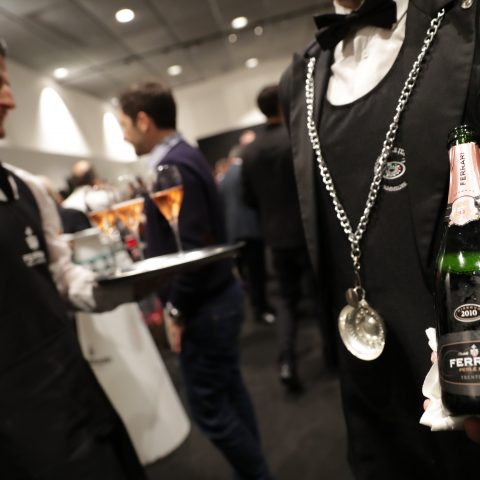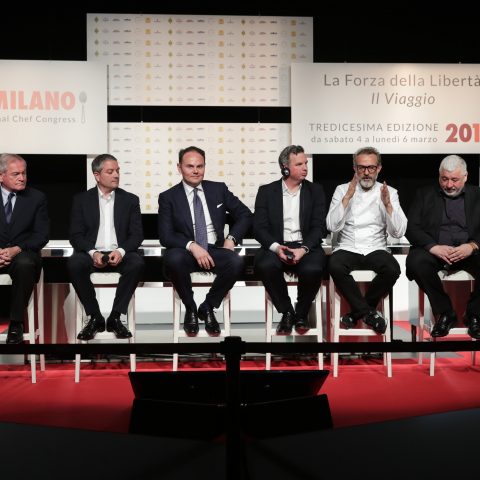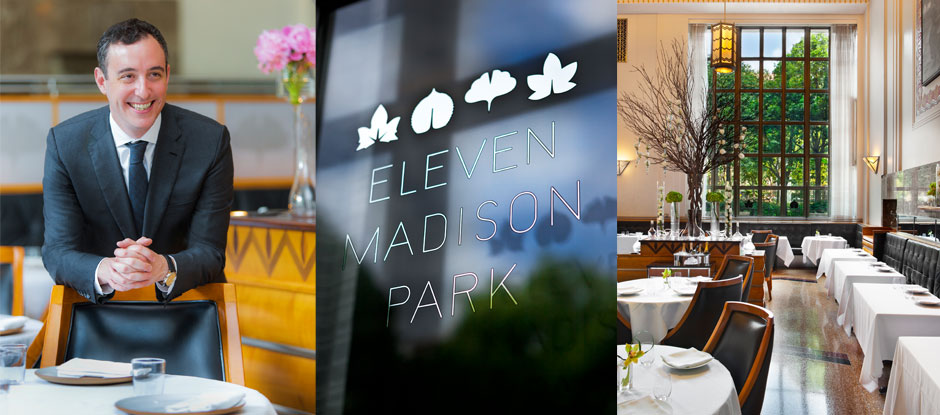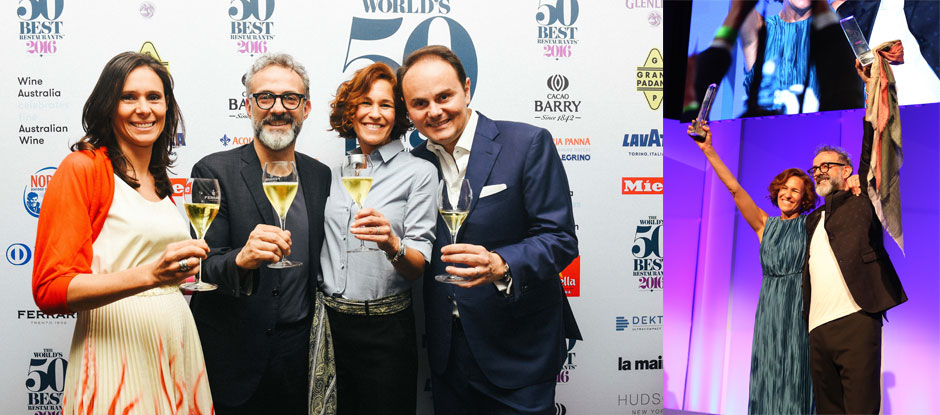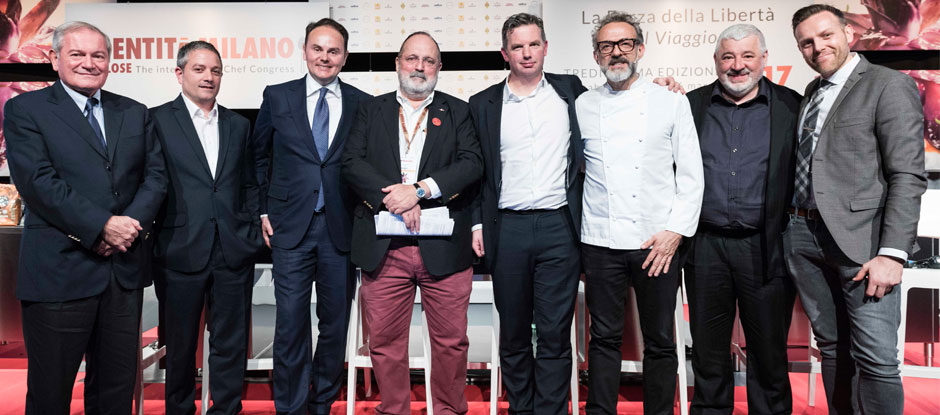

Art of Hospitality
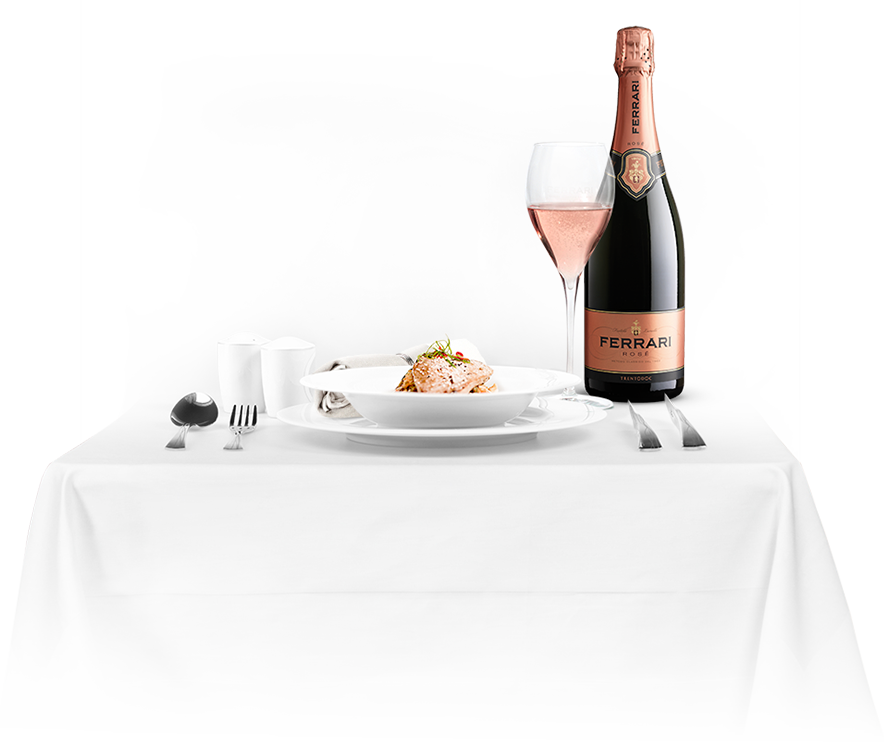
Art of Hospitality
Ferrari Trento’s endeavour to promote the Art of Hospitality keeps on: after launching the Ferrari Art of Hospitality Award in 2016 in partnership with The World’s 50 Best Restaurants, the 2017 edition of the prize took place on April 5th in Melbourne. The restaurant that distinguished itself in providing its guests with a memorable experience based on the magical chemistry created by the perfect balance of high-quality service, hospitality, and conviviality and received the coveted award was El Celler de Can Roca.
This prestigious award provided the opportunity to launch several additional initiatives aimed at placing the spotlight on the service and at forging new partnerships, such as the one signed with Identità Golose, which gathered some of the most important stakeholders of the national and international restaurant industry to share their personal recipe for perfect hospitality.
The Art of Hospitality at Identità Golose
Identità Golose, 6 marzo 2017
Photogallery
The Art of Hospitality according to...
president of Ferrari Winery
In the winemaking industry, excellence is built on several small, conscientious, passionate and careful steps undertaken from the vineyard to the winery. Similarly, in a restaurant, excellence is the product of several details that go beyond a single dish or the work done in the kitchen.
We believe that the Art of Hospitality is perfectly in line with our values and the Italian life style that we embody: a flute filled with bubbles is a symbol of conviviality, a toast embodies the joy of spending time together, and Italy epitomises the culture of hospitality.
These gatherings, coupled with the Ferrari Trento Art of Hospitality Award established in partnership with The World’s 50 Best Restaurants, are framed in our effort aimed at identifying the models that can provide an source of inspiration to the staff working “front-of-the-house” and the young people wishing to embark in such a career.
Group Editor of The World's 50 Best Restaurants
In order to draw up the list of The World's 50 Best Restaurants, we ask our panellists to focus on the best “restaurant experience”, assessing the whole restaurant experience, as opposed to a food-only approach. The Ferrari Trento Art of Hospitality Award wants to emphasize even more the relevance of this component of the experience.
The Art of Hospitality entails providing a customised experience for each and every customer, not based on tested procedures, but rather on a profound understanding of the individual customer and the whole setting and a correct assessment of the nature of the dinner, whether it is about romance, family, or business.
It goes without saying that the concept of hospitality strictly intertwines with the food served. It would be meaningless to assess these elements separately: they should be in harmony, in order to convey at best the character of the restaurant.
chef of Osteria Francescana
A great service can save even the most ordinary dish, a bad service jeopardises even the best dish.
It is always complicated to let others bring to the table a dish that is the product of a personal emotion. This is the reason why it is of paramount importance to have full trust and be able to share ideas with the people working in the dining room. One must convey their passion to the staff in the dining room, involve them in the process, even have them working in the kitchen, building a passionate team.
The keywords are modesty, passion, and dreams.
chef of 8 e ½ , Hong Kong
When stepping into the restaurant, the customer meets the one person that becomes a point of reference for the whole restaurant experience. This person is crucial to make the customers feel at ease, working like a “valve” with the kitchen, which is often subject to a lot of stress.
The restaurant experience must be fulfilling and feature its own character, even in the dining room. This does not mean that all customers have to be treated exactly in the same way, on the contrary, it is very important to adjust the experience to the needs of the clients, which are often in line with their culture. It is also essential to remember the preferences of regular customers.
All this is built on a bedrock of modesty, the ability to welcome the customer without arrogance and smugness, but by focussing on conveying the passion for this work.
director and co-owner of Geranium, Copenhagen
Our restaurant has a peculiar history as far as the relationship between the dining room and the kitchen goes. My partner, Rasmus Kofoed, and I are both chefs and we did not often step into the dining room. One day, though, we decided to take turns in the kitchen and in the dining room, one month each. I have a strong passion for wine and therefore I started in the dining room. After one month, I decided that I did not want to go back to the kitchen.
The people working in the dining room play the biggest role in developing the restaurant experience, because they see and meet the people coming to the restaurant and in doing so they are able to turn the dishes into something even more special, creating truly unique moments.
sommelier of La Pergola and founder of the association “Noi di Sala”
The opportunity to talk about hospitality is an achievement in itself for me, because it means that the focus has finally shifted to the dining room. There is much talk of a Renaissance of Italian cuisine, but we should do the same also for the dining room. I even have a motto for you: “The most important person in the restaurant is neither the chef nor the waiter; it is the customer”.
The interest of young people for the work carried out in the dining room is on the rise; they are coming back and we are receiving an increasing number of applications. It is an encouraging trend, even if today’s youngsters are often too much inclined to move around and have several different experiences, jeopardising the opportunity to properly train for a job. In high-end restaurants, two years of experience are necessary to become part of the team and learn how to communicate at best with international customers.
operations’ director of Rocco Forte Hotels
The significance of the word “Art” combined with the word “Hospitality” is immeasurable. Art is a synonym for emotion, dynamism, change, and our age is characterised by a major revolution, fuelled also by the digital world. Customers are increasingly well informed and are not simply looking for a location, but rather for a genuine experience involving all senses.
In a hotel, the experience must be even more involving and cover a plethora of aspects. A nice location and beautiful facilities are not enough: today’s customers ask for multi-faceted entertainment, they want to discover the culture of the place where they are staying through personal experiences, they want to become part of the location. This is only possible through the establishment of a proper hospitality “business culture” that involves the whole facility, from the maids working in the room to the starred chefs working in the kitchen.

The World's 50 Best Restaurants
talk about Hospitality
Ferrari Trento promotes a culture of drinking responsibly which is part of the Italian Art of Living.
It is a culture linked to the ritual nature of food and the celebration of convivial occasions, in which consumption is moderate and informed.
Enter the ferraritrento.com website only if you share this approach and if you are of the legal age to drink alcohol in your country: a world of excellence awaits you!
